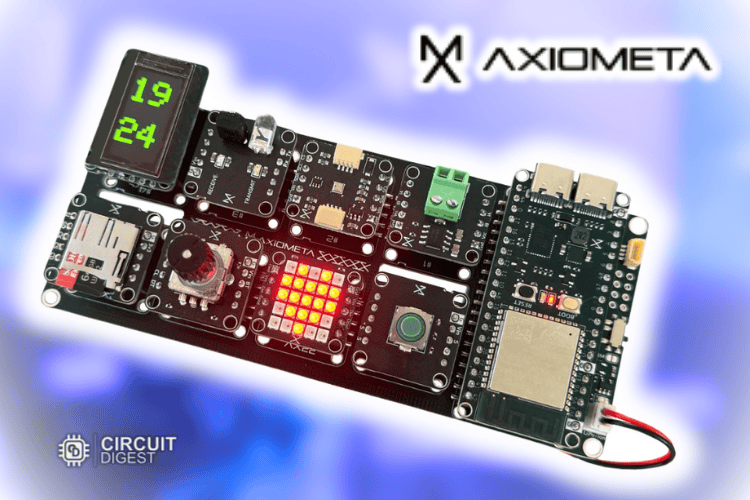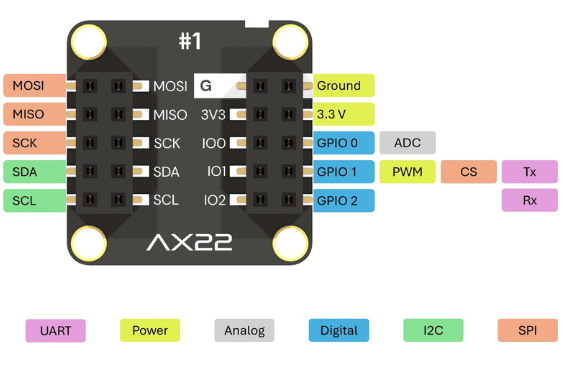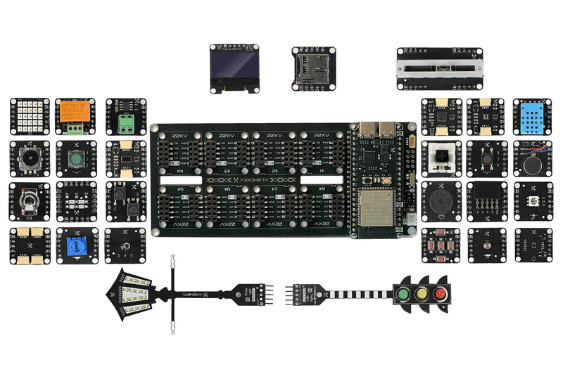
Axiometa’s Genesis IoT Discovery Lab provides a standardized foundation for development by removing unreliable connections and complex wiring in electronics projects. Delivered as a ready-to-use kit, it includes plug-and-play modules for sensors, buttons, switches, motors and LEDs. Each kit also features a built-in battery connector for fully wireless, portable operation. As open source hardware, developers can design and add custom modules to extend functionality.
Tested in university and classroom settings, Genesis IoT Discovery Lab simplifies teaching by eliminating extensive debugging and enabling repeatable lesson plans. It supports development environments such as the Arduino IDE, MicroPython and CircuitPython. Examples demonstrate that users can plug-and-play modules for electronics education and rapid prototyping. They can build custom games or a personal game console, use modules as input devices in professional CAD software, mix waveforms to create synthesizers, automate home IoT tasks, drive interactive art installations, program gaming shortcuts and assemble their own control panels. The open-source CERN-OHL-S-2.0 license encourages community contributions. All schematics and design files are available on GitHub for easy download and collaboration.
The system is built around AX22 modules in a 22×22 mm format with a ten-pin interface supporting I2C, SPI, UART, three GPIO lines and one analog input. Standardized pinouts guarantee consistent ground, voltage and signal connections. The mechanically secured layout enhances reliability during development and transport. Ready-made modules include rotary encoders, potentiometers, light-dependent resistors, MEMS microphones, I2C OLED screens, environmental sensors such as BME280 and DHT11, relays and motor drivers. STEMMA QT, Qwiic and traditional breadboard adapters ensure seamless integration with existing hardware.


At its core, Genesis IoT Discovery Lab uses an ESP32-S3-WROOM-1-N8R2 microcontroller featuring a 240 MHz, 32-bit LX7 core, 2 MB Quad SPI PSRAM and 8 MB flash memory. Connectivity includes USB OTG and UART via a CP2102 interface, Bluetooth 5 and IEEE 802.11 b/g/n Wi-Fi. The board provides short-circuit protection, a power switch and eight universal ports that are configurable for any supported protocol. A USB Type-C port charges a single Li-Po or Li-Ion cell, making the platform flexible and truly portable. For more information about this product, kindly visit to Official Product Page or Crowd Supply Page.

